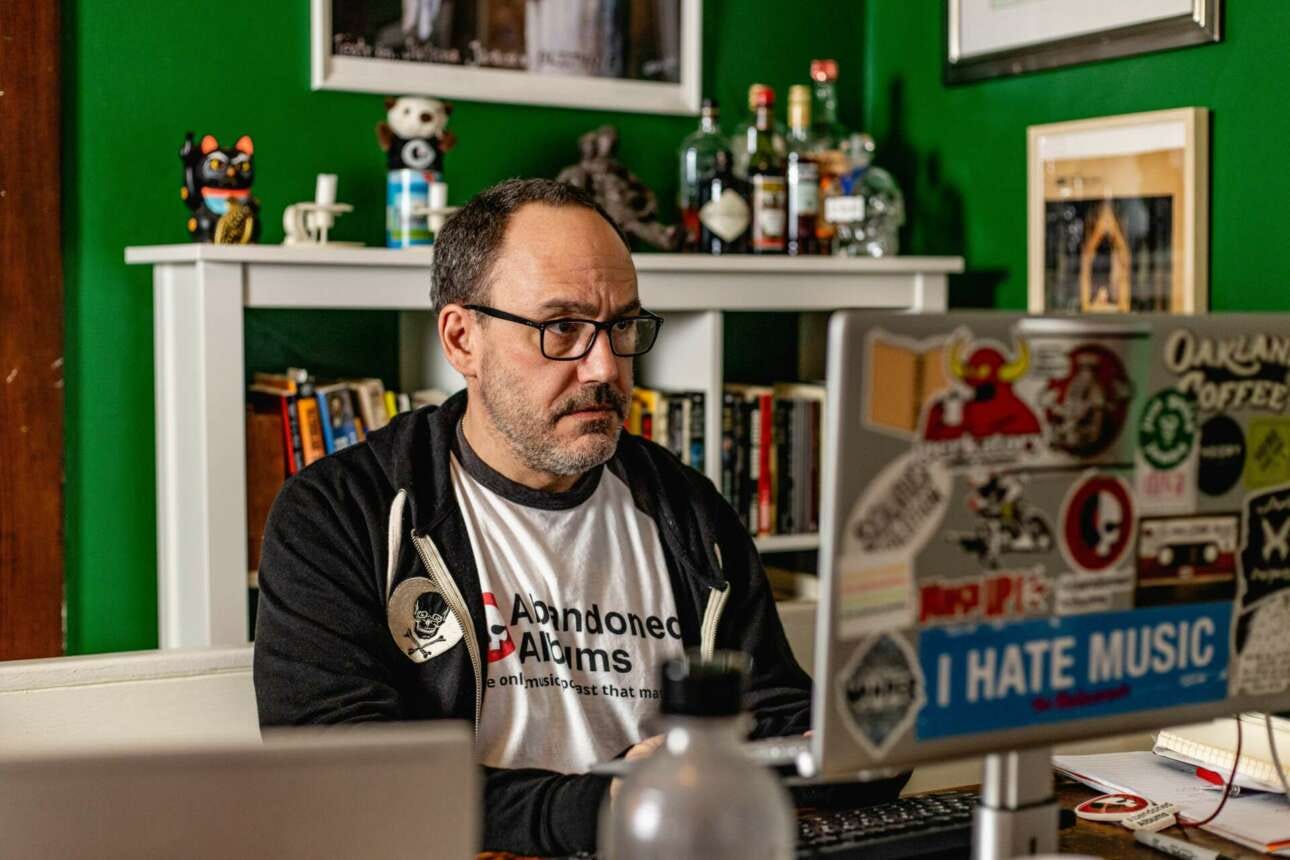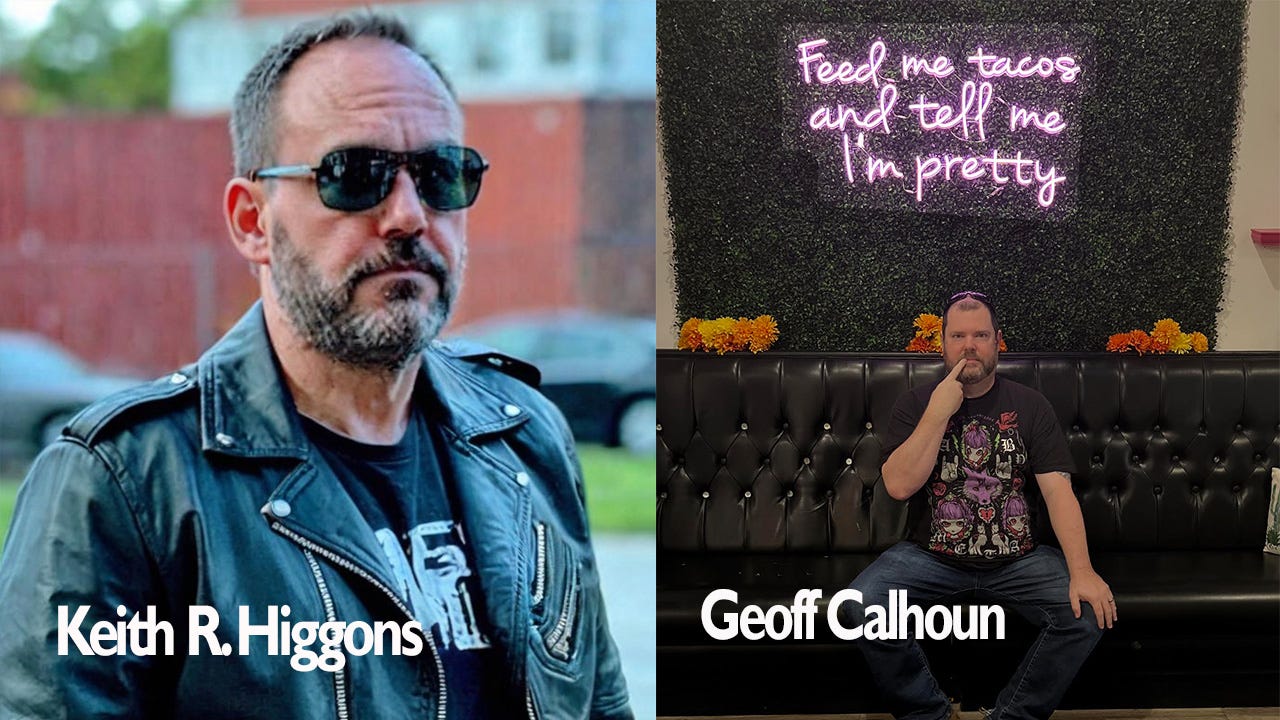Keith, we’re looking forward to hearing your stories today.
Do you feel you or your work has ever been misunderstood or mischaracterized? If so, tell us the story and how/why it happened and if there are any interesting learnings or insights you took from the experience.
Abandoned Albums began under the auspices of highlighting forgotten or overlooked albums. As the series progressed and I met more and more people, limiting the scope to only those albums was shortsighted. Along with my co-host Geoff Calhoun, we decided to widen the berth of the concept to include everything from Abandoned Albums to work by new artists.
We had a long discussion with guest producer/artist Marvin Etzioni about changing the name, but nothing seemed right. And while the idea is still kicked around from time to time, Abandoned Albums remains.
Now and again, we’re still met with some resistance and reactiveness by some artists who deny the album we pitch is “abandoned.” They’re not wrong, and despite our best efforts, some miss the point that an album is just the entry point. The show is about the entirety of the artist’s career, even if that career is only a couple of years old.
It’s a drag to be misunderstood by artists who are put off by the name; however, we’re confident that as we continue to interview a wide range of artists, our message will become clearer.
We always have a hot mic and open door to any artist that wants to come on and have a chat.
Great, appreciate you sharing that with us. Before we ask you to share more of your insights, can you take a moment to introduce yourself and how you got to where you are today to our readers?
Sure thing. I’ve always been a big music fan. My mother would often tell the story about how I couldn’t go to sleep without music on, even as an infant. This was something I continued until my mid-20s. Music has always been an integral part of my life.
As the internet began to take shape, I began to play around with both my writing and what I could do creatively with audio. My first foray into “podcasting,” such as it was in 2006, was a satire of the syndicated show Delilah.
If you‘ve ever heard her syndicated radio show, then you know the show’s premise – people write to her, and then she plays a related song. Wildly successful, if a little too saccharine.
I did something similar… but with a lot more snark. I recorded a 30-45 minute block where I wrote the letters… and played ridiculous songs. For example, someone “wrote” in expressing their joy at having their first child together and instead of playing some sweet love song, I played “The Wreck of the Edmund Fitzgerald” by Gordon Lightfoot.
By 2011, podcasts were a “thing” and I created my next one, Cock Tales. On that show, comedian Anthony Apruzzese and I would record ourselves getting drunk. The next day we would edit into a 30-45 minute show. We determined that if we continued that show, one of us would’ve ended up dead or in rehab.
I can tell you that there is nothing more sobering than having to edit your drunken conversation.
I then started kicking around this idea about lost albums in 2017. One of my favorite albums is the self-titled debut album by the band Broken Homes. This is the record that served as the impetus for Abandoned Albums.
By chance, the drummer who drummed on the album, Don Harvey, reached out to me after reading an article I had written. I asked Don if he was interested in discussing it for a podcast.
I didn’t have a name at that point, only an idea.
Don was into it and then asked if I was going to get any of the other members involved. Of course, I said yes. While I followed the surviving members of Broken Homes on social media, I had not contacted them. But once I did, those guys - guitarist Craig Ross and bass player Jimmy Ashhurst, along with producer Jeff Eyrich, agreed to participate. It came together very fast.
What we do at Abandoned Albums that’s different is that we put a lot of thought into the editing of the show. We use interstitials to transition between discussions. Some are related, and some are quirky. This gives us a lot of freedom to shape a show in which we can use both songs and conversation to emphasize the artist.
The focus of Abandoned Albums is entirely on the artist.
While many of our guests are established artists, in some cases, we bring on artists who we think have a place on the cultural roll call.
The thing I am most proud of is that I feel we’ve created a comfortable and free environment that is super artist-friendly, and that helps make them more willing to open up.
It’s great when an artist agrees to come on the show because they enjoyed an interview we did with another artist. But nothing beats when an artist takes the time to comment that they enjoyed the interview and then chooses to share it on their social media platforms.
If you’re a music fan at all, then I think that you’d enjoy Abandoned Albums. As we approach 80 episodes, I am sure there is an artist we’ve spoken with that you would both know and like to hear more about.
Is there a mission driving your creative journey?
With Abandoned Albums, my goal is to highlight artists and their work. I feel that music is a very powerful form of creative expression. It can take us back in time, forward in time, and allow us to escape from the present if we choose.
There is a lot of music out there, and sometimes it can be overwhelming. Our mission is to make sure that artists, both old and new, don’t get lost in that noise.
Music podcasts are a lot like the early days of FM radio. And if you remember even a little of that era then you know it’s entirely free form and wasn’t restricted by format or genre.
We’d love to hear a story of resilience from your journey.
There is no one singular story, but what often happens is that artists say “no.” In some cases, artists have gotten cranky and said: “That album sold one million copies, it’s not abandoned.” And they’re not wrong; however, I think they’re missing the bigger picture.
I suspect in those cases I haven’t made a strong enough case that the show is focused on the artist’s career, not just the one album.
You know, producing a podcast can feel Sysphean, but I think the work we’re doing with Abandoned Albums is good. And I believe it has value.
I’m learning that podcasting is a bit like the story of the turtle and the hare. There are some 15 million podcasts around the world, so my resilience is best represented by the fact that we’re still saddling up and putting out new episodes of Abandoned Albums every Wednesday, week after week.
And, for those interested, with almost 80 episodes, I’m confident they’ll find an artist on Abandoned Albums they know and like; but I also think they’ll also find a show that is both fun and informative.
Original article: Canvas Rebel: Keith R. Higgons
Contact Info:
Website: www.abandonedalbums.com
Instagram: @abandoned_albums
Facebook: https://www.facebook.com/AbandonedAlbums
Linkedin: https://www.linkedin.com/in/keith-r-higgons231123/
Youtube: https://www.youtube.com/channel/UC3PI-g9ekQQQj2Ovn-MWFQA







